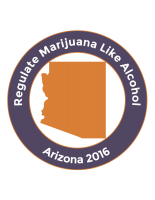Patients in California have had access to medical marijuana since it was legalized in 1996. Two decades of legal medical marijuana in California, the world’s eight largest economy, has formed a thriving market of producers, processors and dispensaries. Propositions on the state’s ballot for 2016, such as the Control, Regulate and Tax Adult Use of Marijuana Act, promise measures to introduce the recreational market into the state regulatory system.
G FarmaLabs, a family-owned and operated business, has been operating in California since November of 2013, when they launched at a Marijuana Business Conference in Seattle that year. Ata Gonzalez, founder of G FarmaBrands and chief executive officer of G FarmaLabs, has been in the cannabis industry since 2009, cultivating in California and operating marijuana dispensaries, when he took notice of the changing industry and consumer trends shifting toward consumption of edibles and concentrates.

“Once the Cole Memo hit in August of 2013, the cannabis industry took off and so did we through a combination of great timing and well thought out regular market packaging and marketing,” says Gonzalez. “With our background in cultivation, we use quality flower as the foundation of our brand, and our proprietary cannabis oil formulations are the backbone of the brand, we use that oil to infuse all regular market edibles products.” They are vertically integrated, beginning with their cultivation of seven strains, so they monitor every blend going into their products and test for potency and pesticides in a consistent manner.
Another key ingredient in their brand recognition seems to come through great product diversity. G FarmaLabs has twenty flavors of infused chocolate bars, a variety of chocolate truffles, pretzels, brittle, chocolate covered cherries, teas, lemonades and other forms of infused edibles. They manufacture a variety of cannabis oil concentrates that come in a syringe to refill cartridges or put on your dry flower or joint but they also sell pre-filled vape cartridges, and pre rolled cannabis cigarettes called G Stiks.

Luigi De Dominicis, chief technology officer of G FarmaBrands, says their extraction process is another essential factor in the brand’s success. They run their raw plant material through supercritical fluid extraction (SFE) with CO2. “We do not use solvents like butane to extract our oil because CO2 is proven to be safe for both the operator and end user; we pride ourselves in putting out a safe and quality product,” says De Dominicis. “The same product that goes into our cartridges and syringes goes into our edibles with a different refinement process, which are all tested for potency, microbials and pesticides to ensure consistency, safety and quality.”
In building a successful recreational brand, their expansion model will play a crucial role in keeping their reputation for quality and consistency. David Kotler, Esq., regulatory counsel for global territories at G FarmaBrands, cites their licensing model as the primary distinction between G FarmaBrands and other large marijuana brands looking to expand across state lines. “We are trying to own and control every operation and keep it consistent with production and manufacturing versus giving up control via the licensing process and giving it to others,” says Kotler. This distinction means that G FarmaLabs producers and processors in different states will all operate under the same best practices regardless of location, ensuring consistency from one state to the next.

“While most states have some form of residency requirements, we are planning to grow organically and self contained, ideally expanding to areas where G FarmaBrands can hold licenses,” adds Kotler. For example, Maryland does not have a residency requirement in their licensing application so that is one of the states they are actively pursuing.
Moving forward, G FarmaBrands is positioning itself for national recognition. “It is difficult in this current regulatory state to state structure to have a national brand, but national recognition is certainly attainable through our great in-house marketing team,” says Kotler.
Running an expansion model of keeping everything very internal, along with their dedication to safety and quality, G FarmaBrands is very well-positioned to be the premier cannabis brand for the state of California, and possibly the nation. They recently harvested a crop in Washington State and in 2016, their products will come to market there. As GFarmaBrands attempts to expand into Maryland for manufacturing, cultivating and operating a retail dispensary, Gonzales keeps his mind set on sustainable growth through 2016 and beyond.








